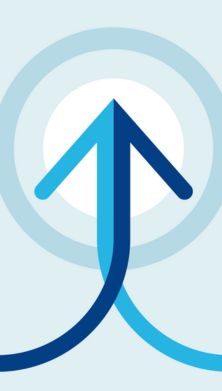- Heightened consumer advocacy, “public shaming” and litigation putting human rights violations in supply chains in the spotlight. More regulatory enforcement expected.
- Companies that fail to take appropriate action face damage to reputation, shareholder suits and greater personal accountability for directors in future.
- Textiles, food, agriculture, electronics and construction sectors connected to modern slavery, although all industries are susceptible.
The modern economy relies on global supply chains moving materials, components and finished products around the globe. However, it is not always easy for companies to comply with social standards and human rights in their supply chain network while the consequences of failing to do so are increasingly severe: Human rights violations in supply chains can not only cause a blow to a company’s reputation or result in costly liability exposures, but could also bring potential lawsuits, shareholder class actions and even personal accountability for directors and officers (D&Os) in future, as Allianz Global Corporate & Specialty (AGCS) highlights in the new issue of Global Risk Dialogue.
Human exploitation takes many forms – ranging from forced labor to modern slavery to trafficking to children in employment. An estimated 40.3 million people are trapped in modern slavery globally, according to the International Labor Organization’s (ILO) Global Slavery Index 2018, emphasizing the need for large organizations to focus on this potential risk in supply chains.
Industries such as textiles, food and agriculture, electronics, construction and hospitality are especially vulnerable. According to the UN’s Guiding Principles on Business and Human Rights, businesses, irrespective of size or sector, must not violate human rights and must address actions when they occur.
The regulatory landscape to curb violations runs the gamut from countries with progressive compulsory statutes – the Netherlands, the US, the UK, Sweden and Belgium – to those that have little or virtually no regulatory restrictions at all – the lowest five countries are North Korea, Libya, Eritrea, the Central African Republic and Iran (ILO, Global Slavery Index 2018).

Reputation on the line
The main threat that a company faces from human exploitation in the supply chain, besides potential liability risks when undertaking business with suppliers, is damage to its reputation. Heightened consumer advocacy, protests and even so-called “public-shaming” exercises, many spearheaded by non-governmental organizations (NGOs) to rally public awareness, make this an increasingly likely prospect for those who fail to comply with required standards. There has even been a rise in targeted civil litigation to combat modern slavery, potentially causing a decline in share price to companies when details of violations are made public.
“Shareholders and customers are demanding far more of companies in terms of how they go about their business and conduct themselves,” says Shanil Williams, Global Head of Commercial Financial Lines at AGCS. Human exploitation in the supply chain is definitely becoming a boardroom concern and a major exposure for directors and officers – especially for companies in the UK, the US, the EU and Australia. Company boards face the challenge to act appropriately regarding corporate social responsibility and to ensure that suppliers and third-party service providers are similarly compliant.
“At a time when regulators and investigatory authorities are focusing unprecedented attention on personal accountability for company directors, issues such as slavery in the supply chain could create major problems for senior managers,” says Williams. “We expect to see more enforcement in the area of human rights and holding directors responsible for transparency in supply chains. Corporations that fail to take appropriate steps to eliminate human exploitation from their supply chains may face shareholder derivative suits. Given more and more D&O claims result from reputational events, this concern will not go away.”
Protecting against liability
Businesses can and should hold vendors and suppliers contractually accountable to fair wages, fair working hours and humane treatment before doing business. By implementing the right checks and balances to address violations, companies can be compliant and forthright to customers, vendors, suppliers and investors, alike.
“It’s important that organizational leadership from the board level down to middle management fully embrace the need to comply with regulations and even take it upon themselves to self-police their policies and procedures,” says Chris Bonnet, Head of Environmental, Social and Governance (ESG) at AGCS. “Implement a policy that stipulates that the firm will not tolerate slavery or human exploitation in its supply chain.”
When an infraction is discovered, businesses must act quickly and state publicly that they won’t tolerate violations of their supplier code of conduct. In addition to proactive risk mitigation, effective crisis response insurance solutions such as Allianz Reputation Protect can help mitigate the impact from reputational crisis incidents.
To avoid the risk of human right violations in its own supply chains Allianz and AGCS have a vendor integrity screening process, which includes prevention of corruption, bribery and other forms of noncompliance, including modern slavery, human trafficking and child labor, and has a vendor code of conduct in place complying with the UN Global Compact, essential human rights and standards of the ILO. AGCS maintains a system of quality assurance and auditing activities to ensure adequate controls for various types of global risks including human rights violations.
Press Contacts
About Allianz Global Corporate & Specialty
Allianz Global Corporate & Specialty (AGCS) is a leading global corporate insurance carrier and a key business unit of Allianz Group. We provide risk consultancy, Property-Casualty insurance solutions and alternative risk transfer for a wide spectrum of commercial, corporate and specialty risks across 12 dedicated lines of business.
Our customers are as diverse as business can be, ranging from Fortune Global 500 companies to small businesses, and private individuals. Among them are not only the world’s largest consumer brands, tech companies and the global aviation and shipping industry, but also wineries, satellite operators or Hollywood film productions. They all look to AGCS for smart answers to their largest and most complex risks in a dynamic, multinational business environment and trust us to deliver an outstanding claims experience.
Worldwide, AGCS operates with its own teams in 33 countries and through the Allianz Group network and partners in over 200 countries and territories, employing over 4,400 people. As one of the largest Property-Casualty units of Allianz Group, we are backed by strong and stable financial ratings. In 2018, AGCS generated a total of €8.2 billion gross premium globally.




















